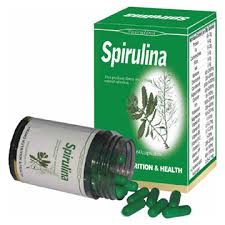First of all, what is spirulina?
Spirulina is an algae, a type of plant that thrives in sea water.
Spirulina is known to be very rich in iron. In fact, it has 58 times more iron than raw spinach and 28 times more than raw beef liver. We thought all along that beef liver is the best source of iron. However with this new development, spirulina now has the reputation of having a very high iron content than those foods that our mothers used to feed us to prevent iron deficiency.
Why is iron so important and why do we need this important mineral in our diet?
Iron protects the body from anemia which occurs when the body does not get enough of the amount needed in order for the body to function properly.
Anemia is a disease that involves the blood particularly a problem in the manufacture of hemoglobin, the part of the blood that contains iron and transports blood within the red blood cells. This defect results in the production of red blood cells that are smaller and whose hemoglobin content is significantly reduced.
How do you know you lack iron in your diet?
You will know your body needs a dose of iron if you have these symptoms:
1. Tiredness and fatigue
2. Lethargy (body has very low energy )
3. Restless leg syndrome
4. Dizziness and headaches
5. Ringing in the ears (tinnitus)
6. Shortness of breath
7. Impaired taste buds
8. Cracked mouth corners
9. Very pale skin and conjunctiva of the eyes
10. Brittle and flat nails.
You might also find this related article helpful:

